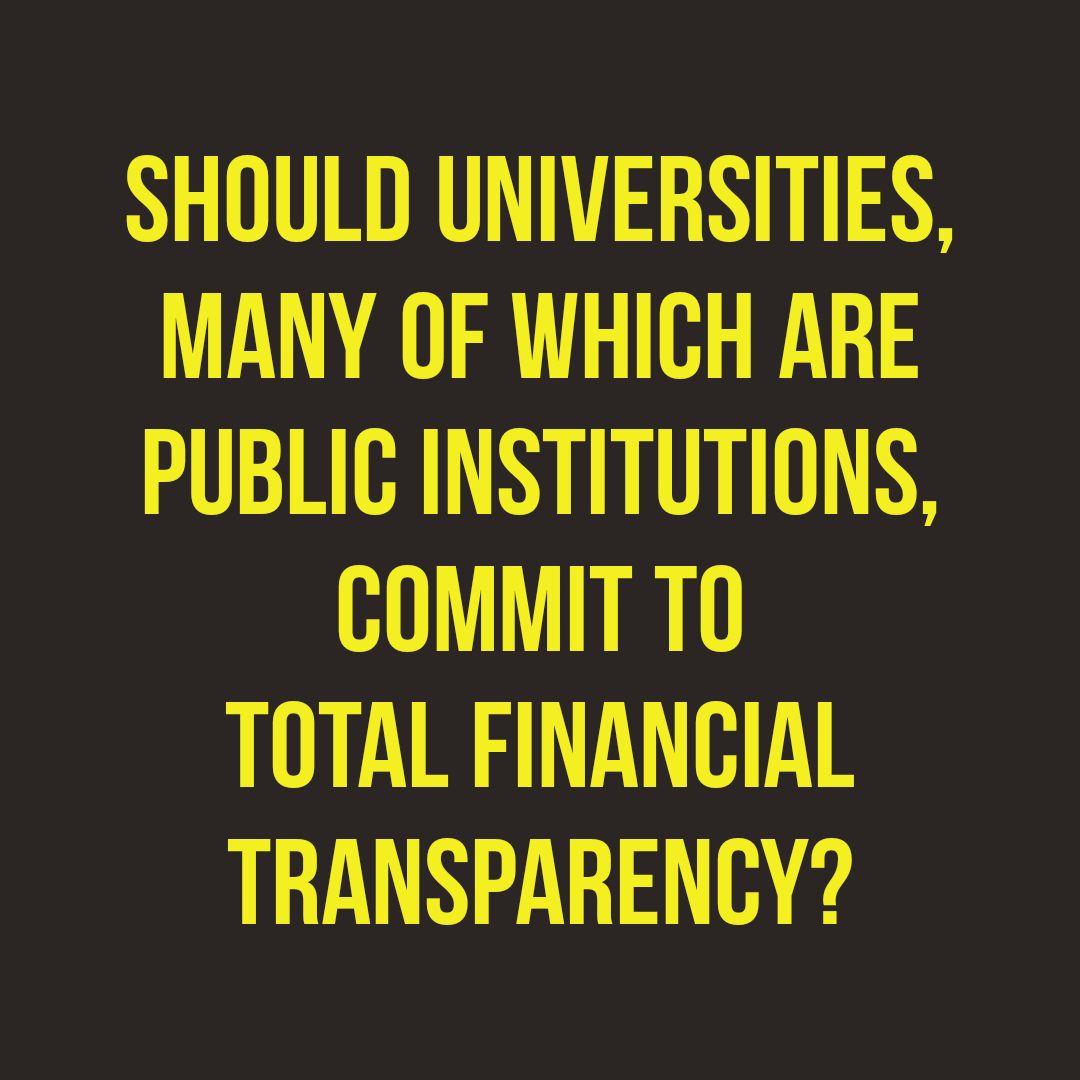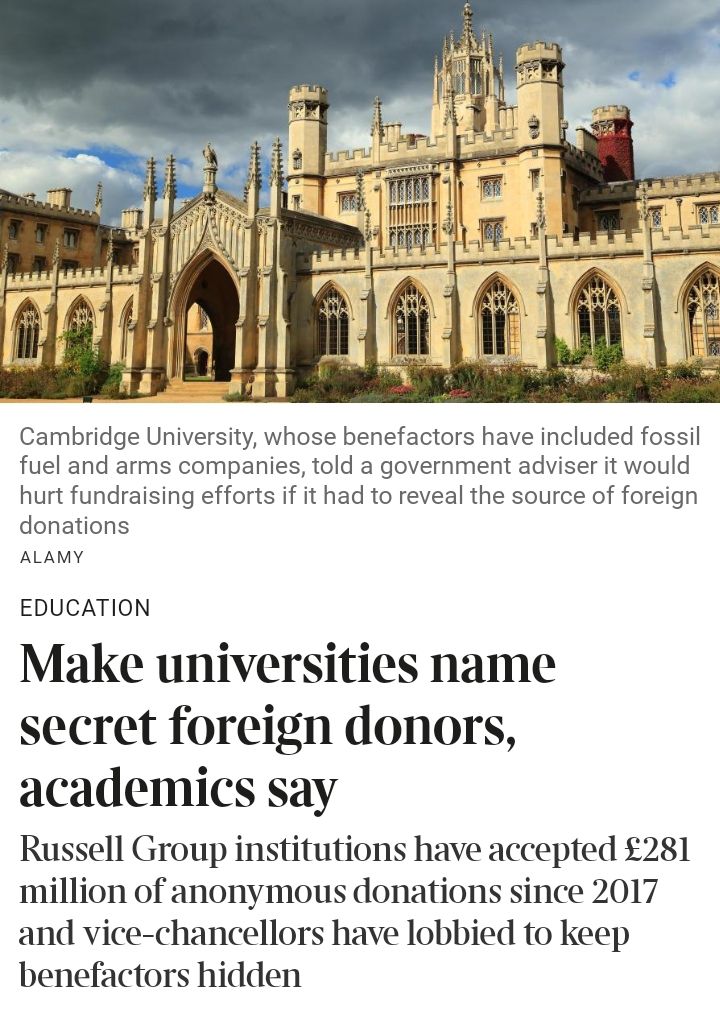
Given the Genocidal White Supremacist backdrop in today’s news cycle it should be relatively easy to convince people of the insidious nature of hidden influence and reputation laundering on university campuses.
However, at first glance, the two seem to be mutually exclusive.
If a billionaire wants to launder their reputation they can make a song and dance out of having a building named after them.
With that will come certain levels of influence within the university; but if a donation is completely secret then what does that do for a donor’s reputation?
What does a secret donor get in return if their donation can’t be made public?
Could a behind closed doors arrangement allow an anonymous donor to affect an institution’s policies, and thereby have an outsize influence on academia in general?
Philanthrocapitalists such as the Bill and Melinda Gates Foundation and the Rockefeller Foundation famously have outsize influence on academia via their donations – but they are all generally public.
Could a Zionist hedge fund manager pressure a university to be more friendly to Zionists? In the US that already happens out in the open. See Bill Ackman and Larry Fink. And the leadership of the ruling parties in Britain are hyper Zionist when it comes to on campus culture wars.
But what about an autocratic leader of a petrostate?
Muammar Gadaffi certainly held clout at the London School of Economics. So much so that Howard Davies had to stand down over allegations that Gadaffi’s son’s PhD was plagiarised. That didn’t stop Davies, who had previously run the Financial Services Authority and the Audit Commission from becoming chairman of RBS / Nat West – a position he still holds.
Saif al Islam Gadaffi was also friends with Peter Mandelson, Nat Rothschild, Oleg Deripaska, Naomi Campbell, and … Ghislaine Maxwell.
All this was relatively out in the open but of course, for whatever reason, Prime Minister David Cameron, Nicolas Sarkozy and Defence Secretary Liam Fox all decided to invade Libya and suddenly Peter Mandelson’s Libyan friends were no longer flavour of the month.
Does every university that takes secret donations want to keep them secret to avoid a repeat of the Libya LSE situation?
Privately knowing secret donors’s preferences might exert a chilling effect on university management and stifle certain forms of campus activity such as resistance, on moral grounds, to sponsorship, certain types of research, or certain types of donors.
For universities transparency appears to be a very expensive game.
This article by Andrew McGettigan outlines what the university bond market looked in 2013 with elite and non elite universities competing for fickle capital.





